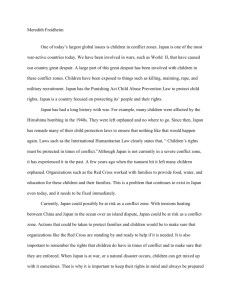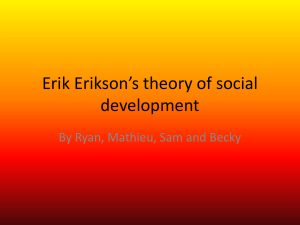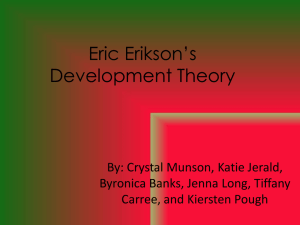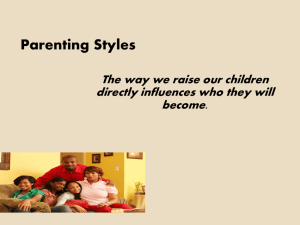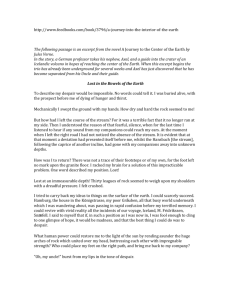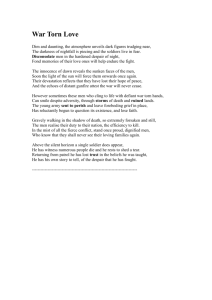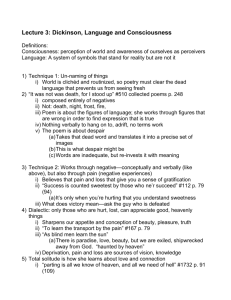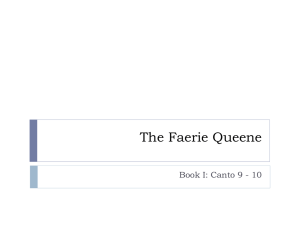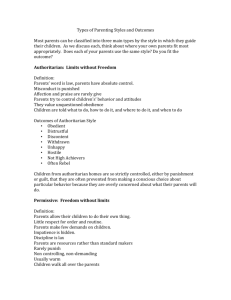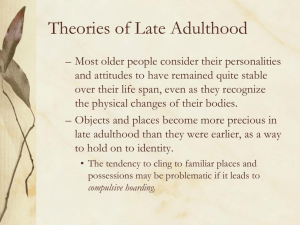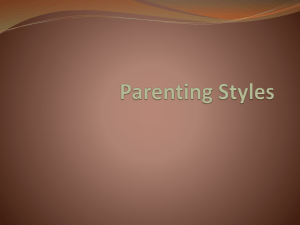OUTLINE FOR LIFE SPAN DEVELOPMENT CHAPTER Stage vs
advertisement
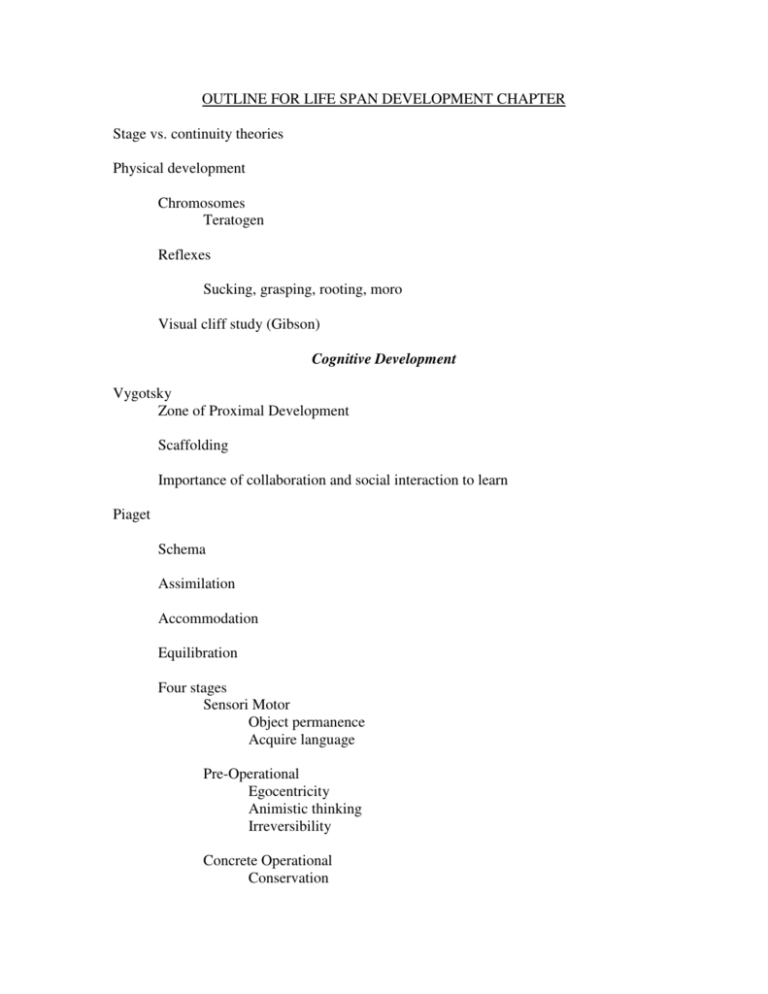
OUTLINE FOR LIFE SPAN DEVELOPMENT CHAPTER Stage vs. continuity theories Physical development Chromosomes Teratogen Reflexes Sucking, grasping, rooting, moro Visual cliff study (Gibson) Cognitive Development Vygotsky Zone of Proximal Development Scaffolding Importance of collaboration and social interaction to learn Piaget Schema Assimilation Accommodation Equilibration Four stages Sensori Motor Object permanence Acquire language Pre-Operational Egocentricity Animistic thinking Irreversibility Concrete Operational Conservation Child looks beyond himself Formal Operational Can think about thinking Information processing model Adolescent development Puberty Personal fable- david elkind Psychosocial Development Erik Erikson Each stage has a crisis to resolve Trust vs. mistrust Autonomy vs. shame and doubt Initiative vs. Guilt Industry vs. inferiority Identity vs. role confusion Intimacy vs. isolation Generativity vs. stagnation Integrity vs. despair Mahler Differentiation Practicing Rapproachment Consolidation and object constancy Levinson Seasons of a man’s life Social Development Bowlby Protest Despair Detachment Harlow Contact comfort Ainsworth Stranger situation procedure Securely attached, avoidant, ambivalent Baumrind Authoritarian Permissive indifferent Permissive Indulgent Authoritative Kubler Ross DABDA Denial, anger, bargaining, depression, acceptance Hospice movement Moral Development Kohlberg Case of Heintz Pre-conventional Conventional Post Conventional Critique of Carol Gilligan Emotional Development Thomas and Chess Easy, difficulty, and slow to warm up temperaments in children “Goodness of fit” Alice Miller and Social referencing
